College Welcomes Nine New Faculty Members to Illinois
by the College of Education at Illinois / Aug 27, 2018
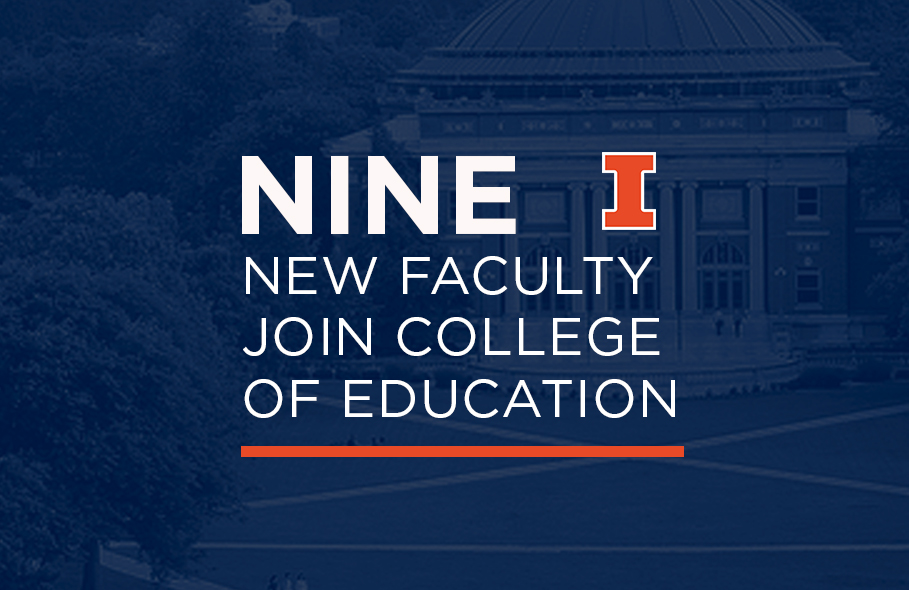
The College of Education has increased its ranks this fall with the hiring of nine scholars across multiple research areas.
The College’s new educators and researchers this semester will be leading the Technology Innovations in Educational Research and Design (TIER-ED) initiative; teaching in the Quantitative Methodology Measurement and Evaluation (QUERIES) program in the Department of Educational Psychology; and joining the departments of Curriculum & Instruction and Education Policy, Organization & Leadership.
Introducing the Fall 2018 Faculty Hires
Curriculum & Instruction
 Idalia Nunez
Idalia Nunez
Assistant Professor
Idalia Nunez completed her doctorate at the University of Texas at Austin in May 2018, receiving her degree from the Department of Curriculum and Instruction in the area of bilingual-bicultural education. She had a prestigious fellowship from UT-Austin to complete her dissertation and publish articles from her study. Her record of publications including peer-reviewed articles, book reviews, and manuscripts under review or in progress reflects academic distinction for a doctoral student at this point in her studies. She has also presented at the major conferences in the field of education, specializing in literacy and bilingual education, for such organizations as the American Education Research Association, Literacy Research Association, and the National Association for Bilingual Education. Nunez will be teaching CI 477 (Bilingual ESL Methods & Material).
 Mike Tissenbaum
Mike Tissenbaum
Assistant Professor and TIER-ED Collaborator
Dr. Tissenbaum received his doctorate in 2014 from the University of Toronto, where he focused on the design of digital learning environments including multimodal classroom spaces. Prior to his tenure at Illinois, Tissenbaum was a learning research scientist at MIT, working with computer scientists and artificial intelligence researchers to design adaptive learning technologies. He also worked as a postdoctoral scholar at the University of Wisconsin-Madison on learning technologies in museum spaces that cultivated collaboration and computational thinking. His work centers on how to design "transformational" learning environments that combine interactive physical spaces, digital information, and collaboration between learners. He is interested in developing children's computational literacies and also has an interest in teacher training. Tissenbaum has also authored National Science Foundation-funded projects and recently published a first-author paper in the highly regarded International Journal of Computer-Supported Collaborative Learning. He will be teaching CI 499 (Designing Learning Spaces).
Educational Psychology
 Cynthia D’Angelo
Cynthia D’Angelo
Assistant Professor and TIER-ED Collaborator
Dr. D'Angelo received her doctorate in science education from Arizona State University in 2010. Her dissertation focused on student learning with a digital physics game called SURGE. She was a senior researcher at SRI International and held a two-year postdoc at the University of Wisconsin-Madison in the Epistemic Games Group, designing and studying the effects of a particular game to teach environmental science and urban planning. Her recent projects include a classroom VR study, a meta-analysis on the learning effects of games and simulations, and the application of learning analytics to novel educational technologies and student interactions. D'Angelo has been a primary investigator on a National Science Foundation award and has substantial experience doing interdisciplinary center-level work. She has published in the Journal of Research in Science Teaching, Educational Technology, and the Journal of the Learning Sciences. Dr. D'Angelo will be teaching EPSY 555 (Advanced Educational Technologies for Engagement and Interactive Learning).
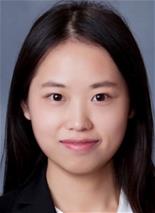 Ge (Gabriella) Jiang
Ge (Gabriella) Jiang
Assistant Professor
Ge Jiang completed her doctorate in 2018 in quantitative psychology from the University of Notre Dame and earned her master's degree in 2017 in applied and computational mathematics and statistics. Dr. Jiang’s expertise is in structural equation modeling, statistical learning, and item-factor analysis. She has done work on model-fit statistics, factor analysis, measurement invariance, equivalence testing, cluster analysis, feature selection, regularization, factor analysis with ordinal variables, estimation methods, and effect size and power analysis. Jiang has also worked on computer software development to implement her proposed methods. She has produced 11 quality publications and papers in press in top-tier journals, including Structural Equation Modeling, Multivariate Behavioral Research, and the British Journal of Mathematical Statistical Psychology. Dr. Jiang will begin teaching EPSY 574 (Quasi-Experimental Design) during the spring semester.
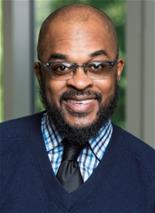 Rodney Hopson
Rodney Hopson
Professor
Rodney Hopson received his doctorate in educational evaluation from the University of Virginia in 1997 and was an NIDA postdoctoral research fellow at the Johns Hopkins Bloomberg School of Public Health the following year. He began his academic career as an assistant professor at Duquesne University, where he was successfully tenured and promoted to associate professor, served as department chair, and ultimately promoted to full professor. Hopson served as associate dean for research in the College of Education and Human Development at George Mason University (2017) and professor of the Division of Educational Psychology, Research Methods, Education Policy (2013). His research has focused on evaluation and comparative educational reform, with a focus on post-apartheid educational contexts. He has received a number of fellowships to research and teach abroad including a Fulbright and has co-edited or authored seven books, three special-issue volumes, 25 book chapters, and more than 20 peer-reviewed articles in outlets such as Anthropology and Education Quarterly New Directions for Evaluation and Review of Educational Research. Additionally, Hopson has secured nearly $5 million in funding to support his research and evaluation work. During his career, he has received a number of awards including the Paul Lazarsfeld Evaluation Theory Award and Robert Ingle Award for Service from the American Evaluation Association. Hopson is heavily involved with the American Educational Research Association and has an exemplary record of developing, implementing, and receiving external funding in the development, training, and mentoring of culturally diverse students and early-career professionals in evaluation. Dr. Hopson will be teaching EPSY 470 (Intro to Educational Theory).
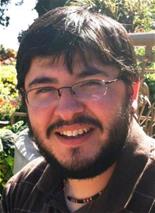 Justin Kern
Justin Kern
Assistant Professor
Justin Kern completed his doctorate in 2017 in quantitative psychology at Illinois and earned his master's degree in psychology and a master's degree in statistics. He was a visiting assistant professor at the University of California at Merced, and his research focuses on item-response theory, computerized adaptive testing, structural equation modeling, ideal point modeling, N-way component models, measurement equivalence, and model estimation techniques. Dr. Kern has also collaborated on applied projects as a statistical consultant. His publications reflect his interests, with four of them in top-tier methodological journals such as the Journal of Educational and Behavioral Statistics, the Journal of Classification, and the Journal of Applied Psychological Measurement. He also has six papers at various stages of review and was awarded three diversity fellowships. Dr. Kern will be teaching EPSY 582 (Advanced Statistical Methods).
 Yan Xia
Yan Xia
Assistant Professor
Yan Xia completed his doctorate in 2016 in educational psychology and learning systems from Florida State University and was a postdoctoral research fellow in the Measurement and Statistical Analysis School of Social and Family dynamics at Arizona State University. Dr. Xia’s scholarship centers on methods for ordered categorical data as well as incomplete, non-normal, and contaminated data in the context of structural equations modeling and item-response theory. He has published work in this area, specifically on goodness-of-fit statistics and bias correction. Additionally, Dr. Xia has been published in top journals such as Applied Psychological Measurement, The American Statistician, and Structural Equation Modeling. He has also collaborated on projects as a statistical expert, a research assistant, and as a consultant. Dr. Xia will be teaching EPSY 584 (Multivariate Analysis in Psychology and Education).
Education Policy, Organization & Leadership
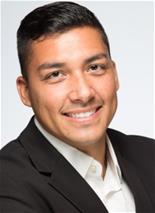 Nathan Castillo
Nathan Castillo
Assistant Professor and TIER-ED Collaborator
Dr. Castillo received his doctorate from the University of Pennsylvania in 2017 in human development & quantitative methods and a master's degree in education from Harvard in international education policy in 2009. His dissertation research focused on literacy technologies in rural South Africa. Castillo was a postdoc at the University of Pennsylvania and continued his focus on international education and on how digital technologies can be used to address issues of equity. He has a passion for addressing worldwide literacy and utilizing novel uses of Web technologies to encourage practices of reading and writing that bridge home and school. His research has utilized learning analytics and associated metrics of learning and literacy with diverse populations, and has spanned numerous contexts including MOOCs, rural Africa, and Guatemala. He has publications in Information Technologies and International Development and Comparative Education Review.
Rebecca Hinze-Pifer
Assistant Professor
A former postdoctoral fellow at Stanford, Dr. Hinze-Pifer earned her doctorate from the University of Chicago Harris School of Public Policy. She was a secondary teacher for seven years and a National Academy of Education/Spencer Dissertation Fellow, with a dissertation that was supported by the AERA-MET Dissertation Fellowship in 2015 and the Institute of Education Sciences Predoctoral Interdisciplinary Research Training Program. Hinze-Pifer earned a master's degree in public policy at George Washington University and a bachelor’s degree in astrophysics and computer science at the University of Wisconsin–Madison. Her research examines adolescent socioemotional and academic skill development, with a particular focus on the role of school discipline systems and classroom management practice.